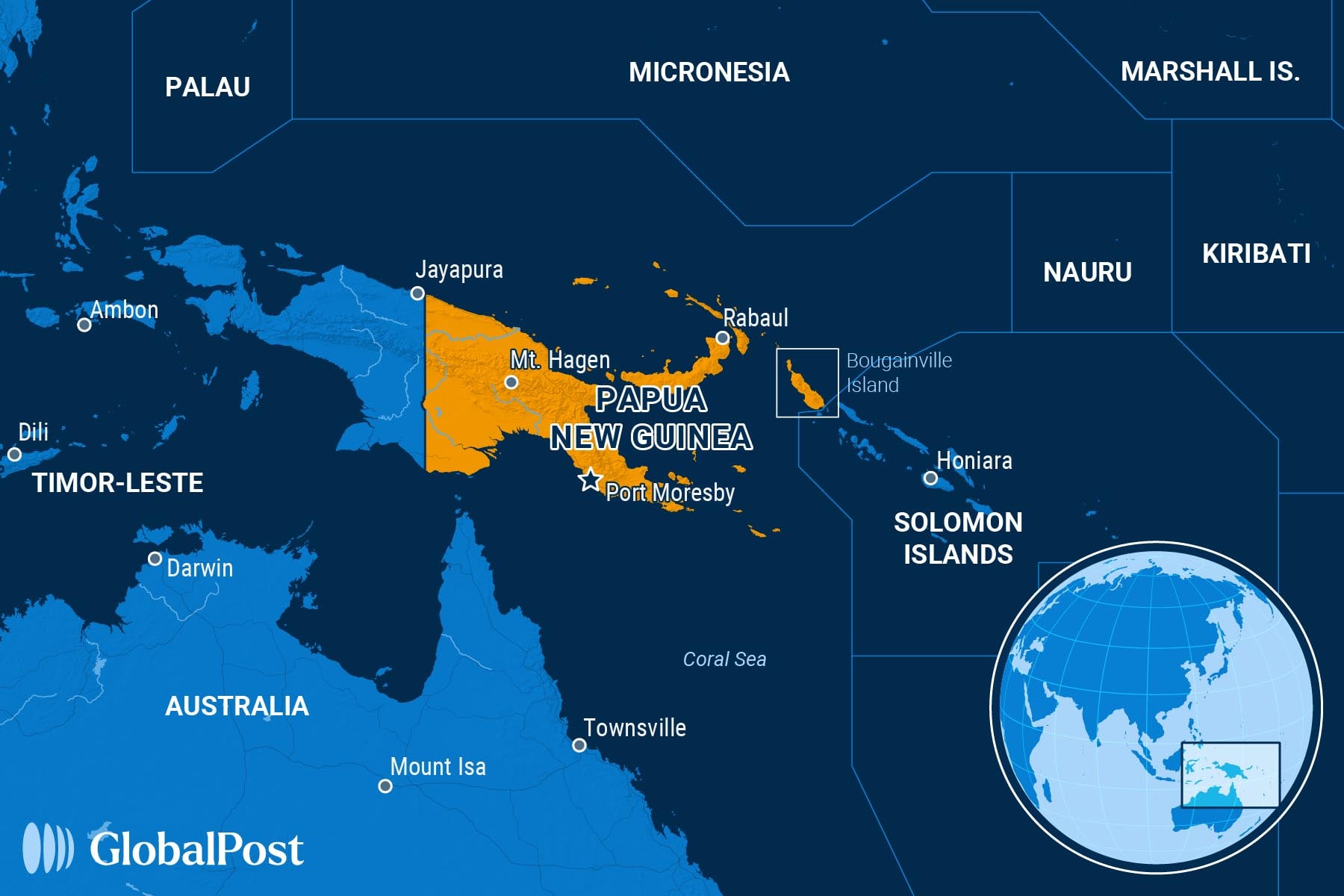Copper, Gold, and Independence: Bougainville Pledges To Be World’s Newest Country

In 2019, as part of a peace agreement to end a civil war between Papua New Guinea and the autonomous region of Bougainville, the latter’s government held a nonbinding referendum on independence. Eighty-five percent of voters turned out. Ninety-seven percent opted to split off from Papua New Guinea. Today, however, Bougainville still remains part of that South Pacific nation.
Home to 300,000 people on two islands that are 500 miles away from Papua New Guinea, the country has a long history of colonial oppression and resistance to German, Australian, Japanese, and other foreign powers, explained Who What Why.
Now, as the Diplomat wrote, Bougainville’s citizens, eager to gain their sovereignty, are likely to declare independence if Papua New Guinea’s parliament doesn’t grant it to them. New Zealand has been brokering talks on the subject, but nothing has come of them, yet, wrote the Pacific Media Network.
This question is naturally dominating Bougainville’s upcoming general election on Sept. 4, when voters will choose a president and parliament.
Incumbent President Ishmael Toroama, a former leader of the Bougainville Revolutionary Army rebels, won office in 2020 on a platform to secede. Running for a second term, he’s drafted plans for the move but has repeatedly said he would prefer consensus. In an interview with Radio New Zealand, he claimed he was calm and relaxed but seemed frustrated at how his negotiations with Papua New Guinea’s leader have become bogged down in technicalities.
His rivals, including his former rebel comrade-in-arms, Sam Kauona, are vowing to succeed where he has failed. Others, like veteran politician Joe Lera, are running on anti-corruption platforms, claiming that Toroama is incompetent and has mishandled public funds.
The election in this remote corner of the world has big implications because Bougainville is home to one of the world’s biggest copper veins and rich gold deposits in the now-shuttered Panguna mine. These minerals could finance independence, creating jobs, generating taxes, funding infrastructure, and stitching the country into the global economy. They could also despoil the new country’s environment and empower corrupt politicians.
Bougainville’s copper and gold riches have drawn much interest from Australia, which considers the country part of its so-called “inner security arc,” as well as China and the United States, whose leaders see important resources and a potential ally, wrote Australian journalist Barbara Barkhausen in International Politics and Society.
At the same time, Australia could hold the key to Bougainville’s future, argued Macquarie University anthropologist Anna-Karina Hermkens in the Conversation. Australian mining giant Rio Tinto formerly ran the Panguna mine. Australia supported Papua New Guinea’s fight against the Bougainville Revolutionary Army, and it also helped broker the peace agreement between the two foes in 2001. Now it could broker the birth of a new country while maximizing the benefits of American and Chinese involvement.
Still, there are dissenters. A senior Bougainville government official told the Guardian that independence was “inevitable” but that Bougainville is “nowhere near” ready. “We want a sovereign nation that is healthy, that is viable,” said the official.
But others say that Bougainville has been held back by Papua New Guinea, whose early years after independence it financed with the proceeds earned from the now-closed copper mine.
“We must obtain political independence in order to have some sovereign powers in order to make strategic economic decisions,” said Ezekiel Masatt, the minister for the implementation of the independence referendum, in an interview with Radio New Zealand. “Australia never demanded that Papua New Guinea be economically independent (before its actual independence).”

Subscribe today and GlobalPost will be in your inbox the next weekday morning
Join us today and pay only $46 for an annual subscription, or less than $4 a month for our unique insights into crucial developments on the world stage. It’s by far the best investment you can make to expand your knowledge of the world.
And you get a free two-week trial with no obligation to continue.
